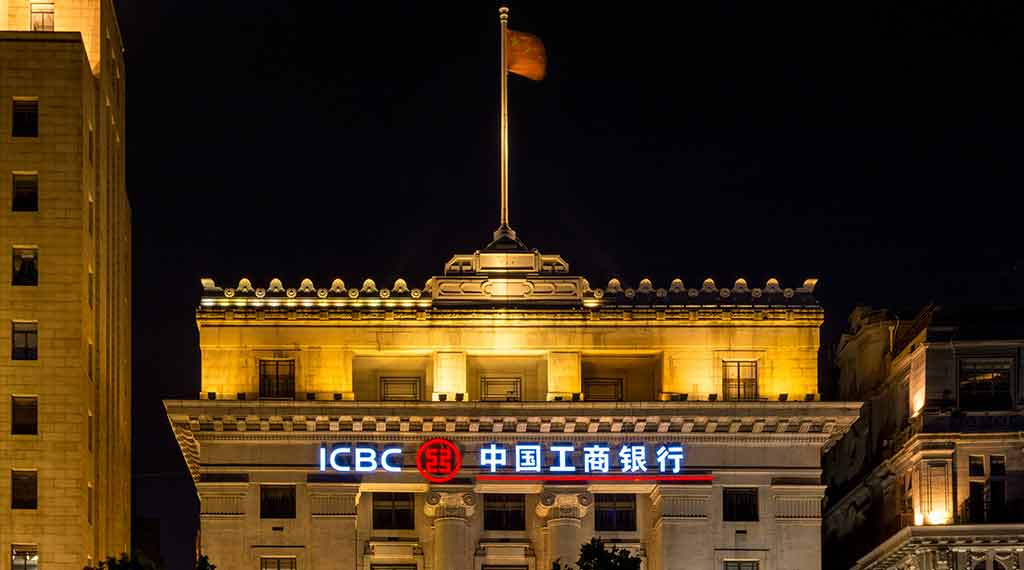China faces major social problems, including its demographics, and economic problems that are retarding growth. Little noticed, perhaps, is the most pressing economic difficulty: a looming banking crisis due to problems that local governments face. These are not problems that Chinese President Xi Jinping can readily solve, and they introduce profound dangers for the Chinese Communist Party (CCP).
According to a recent report by Goldman Sachs, 61% of Chinese bank assets are in local government loans that are unlikely to be repaid. The investment giant downgraded most of the national banks in China. The total amount of debt at provincial, regional, county and municipal levels is estimated at $9.5 trillion, according to the International Monetary Fund.
To understand how such astronomical debt could accumulate, we must understand that there is a so-called “secondary budget” — namely, land sales.
Land in China was privately held until the Communist Party came to power in 1949 and confiscated it all. During the reforms of the Deng Xiaoping era, the government, especially local governments, monopolized the power of granting land use and housing development permits. For a few decades, the local governments greatly relied on land sales and taxes to enrich themselves and their cadres. The central government, of course, took a large share of the money from these land sales and taxes, especially with infrastructure construction.
Rapid urbanization in China led to an increase in housing demand, though sales have declined since the pandemic. In 1980, 20% of China’s population lived in urban areas and 80% in rural areas. Urban housing conditions are exceptionally poor — in Shanghai, for example, the average is 20 square feet per person. Yet, since the early 1990s, China has experienced a massive urbanization movement. In 2021, 63.89% Chinese were urban residents, or about 901 million people. The average living space in urban areas in 2022 was 393 square feet.
The rapid urban development and industrial expansion prompted a vast land grab by the governments and facilitated extravagant spending at local levels. The perception that there was ever-rising housing and construction demand has been shown to be false. Banks provided loans to local governments with an expectation of safe return, but like much else in China, corruption in land sales is a factor.
A dramatic decrease of demand for land has occurred unexpectedly, in part because of China’s former one-child policy, which led to a population decrease and a growing percentage of older people. Additionally, the impact of COVID-19 on China has been profound, leading to further decreases in urbanization and industrialization. This, in turn, has further depressed land sales.
Xi’s draconian COVID lockdowns exacerbated the problem. Local governments relied heavily on bank loans to compensate for lost revenue, placing them heavily in debt. The result is the Chinese version of the subprime mortgage crisis of 2008-09, which had profound consequences for the U.S. and many states around the world but not China.
The problems of Chinese banks are compounded by other difficulties, such as the lack of transparency in their accounting. Due to secrecy, it is probable that the situation is worse than we know. Although China’s economic growth was already in decline, the banking industry’s problems and the drop in the value of urban land could potentially destabilize the country. Corruption and risky practices have made the ledgers of many Chinese banks works of fiction, and some wonder whether they will survive a crisis on their own.
If banks fail, social unrest can follow. It has happened on a small scale in China. In June 2022, several local banks were rumored to be bankrupt and thousands of account-holders rushed to withdraw money. The banks allegedly conspired with local officials to change these people’s “health QR code” to red, to bar them from leaving their homes during the COVID lockdown. The bank customers protested and to quell this, the government arrested 234 alleged conspirators.
The collapse of China’s banking industry, if it happens, could generate unrest that might be substantial enough to affect Chinese politics and the global economy. Since Deng’s rule, the CCP leadership has promised economic growth. Now, the time of economic expansion appears to be waning, and some analysts believe China has entered a period of economic decline. If this continues long enough, it could mean an uncertain future for the CCP. And if the communist regime cannot sustain its rule, it would mean big changes for the stability of China and the world.

